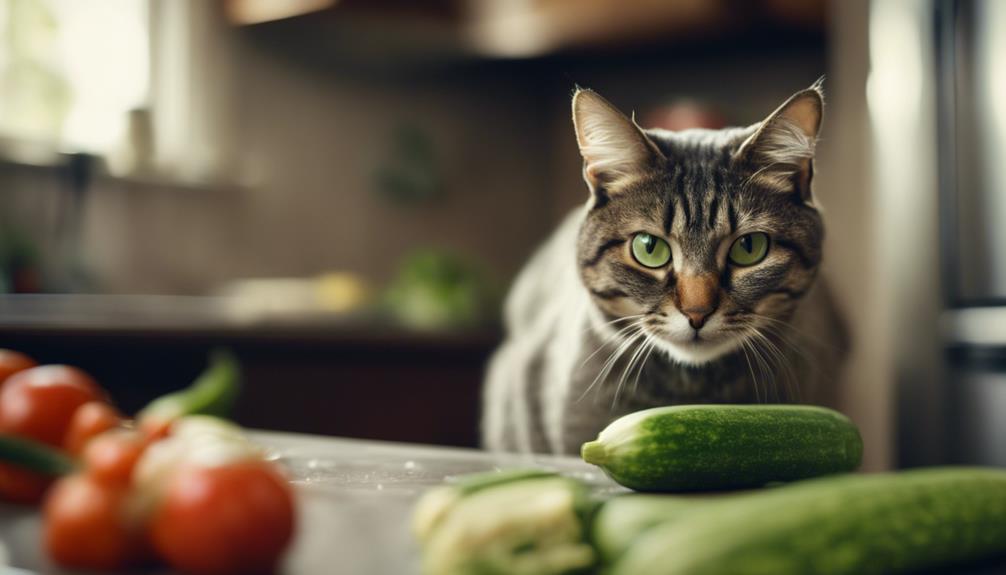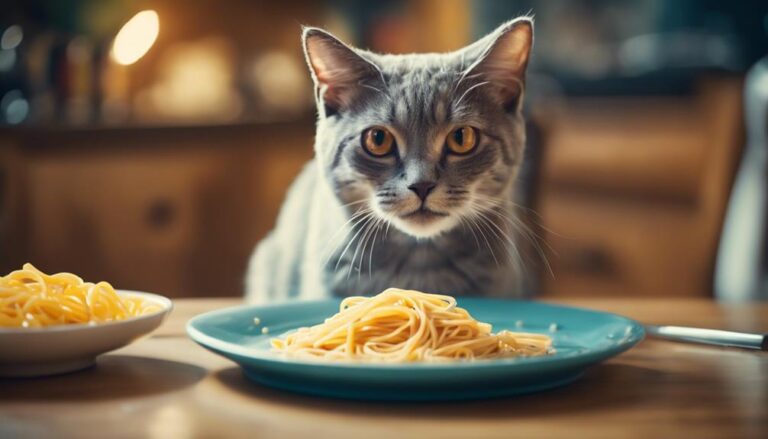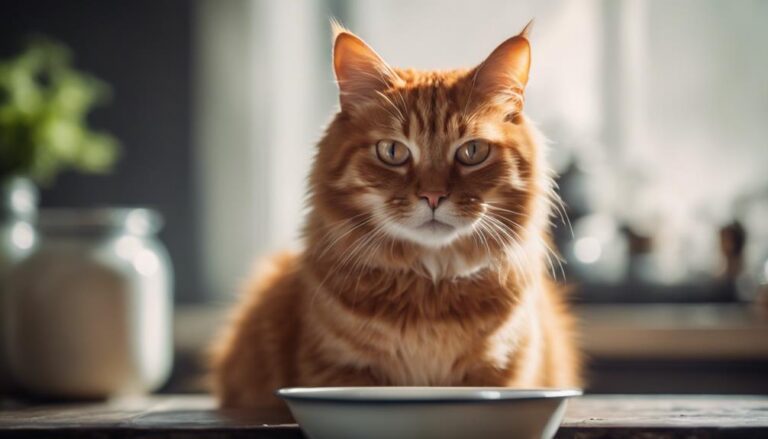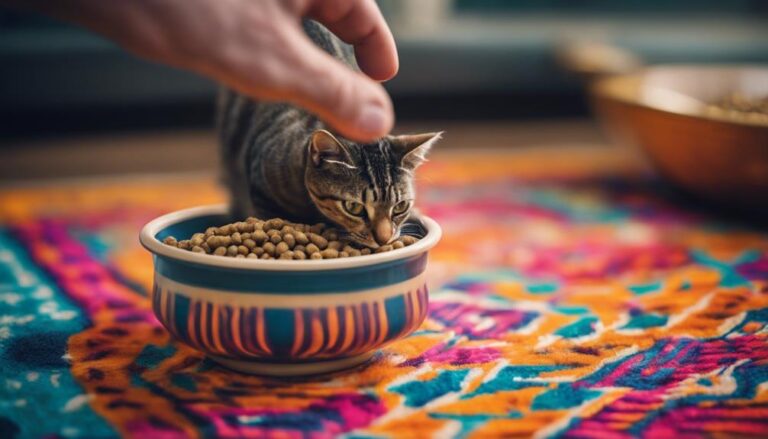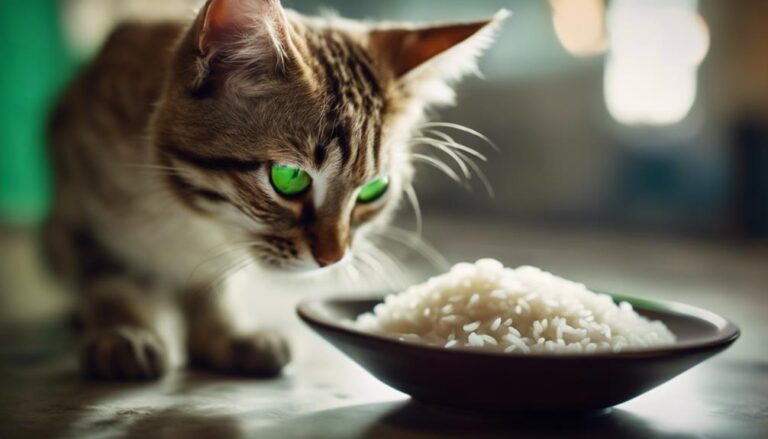If you've ever wondered about introducing zucchini into your cat's diet, you're not alone. While cats are obligate carnivores, the inclusion of certain vegetables can provide a nutritional boost. But can cats really eat zucchini? Before you start dishing out this green veggie to your feline friend, there are a few key considerations to keep in mind. Stay tuned to find out how zucchini can fit into your cat's meal plan without causing any dietary disturbances.
Health Benefits of Zucchini for Cats
Zucchini offers essential health benefits for cats, from providing antioxidants to supporting digestive function and metabolic processes. Cats can eat zucchini as part of a balanced diet to promote their overall health. This small, healthy vegetable can be a great addition to your cat's food.
The antioxidants in zucchini help combat health issues in cats, while the dietary fiber it provides supports gut health and digestion. Additionally, zucchini is a good source of magnesium, which aids in various metabolic functions in cats. The potassium content in zucchini also plays a crucial role in supporting nerve and muscle function in felines.
Furthermore, being low in calories, zucchini can help manage weight effectively in cats. Consider adding zucchini to your cat's diet to take advantage of these fantastic health benefits. Remember to feed it in moderation to ensure a balanced nutritional intake for your feline friend.
Potential Allergies to Zucchini in Cats
If your cat shows signs like vomiting, diarrhea, or skin irritation after eating zucchini, they might've an allergy.
To manage potential zucchini allergies, consider eliminating it from their diet and consulting your vet for guidance.
Seeking veterinary advice is crucial to ensure your cat's health and well-being if you suspect any adverse reactions to zucchini.
Zucchini Allergy Symptoms
While zucchini sensitivity in cats is uncommon, it's essential to remain vigilant for potential allergic reactions in your feline companion. Allergic reactions to zucchini in cats may manifest as vomiting, diarrhea, or skin irritation.
If you notice any of these zucchini allergy symptoms after your cat consumes zucchini, it's crucial to consult a veterinarian promptly. Monitoring your cat's response to zucchini can help determine if they have an allergy.
Managing Zucchini Allergies
When managing potential zucchini allergies in your cat, vigilance and prompt action are key to ensuring your feline's well-being. Remember to monitor your cat closely for any signs of allergic reactions, especially digestive issues like vomiting or diarrhea. If you notice any adverse effects after introducing zucchini into your cat's diet, it's crucial to consult a veterinarian promptly.
Make sure that the addition of zucchini complements your cat's meals without causing any negative reactions. Your cat's health should always be a top priority, and by staying alert to any allergic responses, you can help keep your furry friend safe and happy.
- Watch for signs of allergic reactions, such as vomiting or diarrhea.
- Monitor your cat closely when introducing zucchini.
- Consult a veterinarian if you suspect your cat is allergic.
- Ensure zucchini complements your cat's diet without adverse effects.
Seeking Veterinary Advice
Consider consulting your veterinarian if you observe any adverse reactions in your cat after introducing zucchini into their diet.
While cats can generally enjoy zucchini without issues and even reap health benefits, some may experience digestive upset such as an upset stomach or diarrhea. Itching could also indicate a potential allergy.
Start by offering small amounts of zucchini as a healthy treat and carefully monitor your cat's response. If any concerning symptoms arise, it's advisable to consult with your veterinarian to ensure your cat's digestive system tolerates zucchini well.
Serving Size Guidelines for Cats
For an average-sized cat, a small slice or tablespoon of zucchini can serve as a suitable treat, constituting around 10% of their daily caloric intake. When considering zucchini as a treat for your cat, remember the following guidelines:
- Start Small: Begin with a small portion of zucchini to gauge your cat's reaction before offering more.
- Moderation is Key: While zucchini can be a healthy addition to your cat's diet, it shouldn't replace their regular foods.
- Caloric Consideration: Treats, including veggies like zucchini, should only make up a small portion, about 10%, of your cat's daily caloric intake.
- Weight and Fiber: Zucchini is low in calories and contains fiber, which can be beneficial for a cat's digestion and weight management.
Raw Vs. Cooked Zucchini for Cats
If you're looking to introduce zucchini into your cat's diet, consider the benefits of serving it in either raw or cooked form. Cooked zucchini is softer and easier for cats to eat, making it a better option for older cats or those with dental issues.
However, raw zucchini is safe for cats to consume and can provide dietary fiber crucial for a healthy digestive system. While raw zucchini may retain slightly more nutrients than cooked zucchini, the nutritional variance is minimal for cats.
When it comes to weight loss, both raw and cooked zucchini can be beneficial due to their low-calorie content. If your cat struggles to chew or digest raw zucchini, consider serving it cooked as it can enhance the flavor and make it more appealing.
Remember to introduce cooked zucchini gradually to ensure your cat enjoys this new treat and adapts well to it.
Incorporating Zucchini in Cat's Diet
To introduce zucchini into your cat's diet effectively, start by gradually incorporating small amounts into their meals to observe their response and ensure a smooth transition. Zucchini can be beneficial for weight loss in cats when used appropriately.
Here are some tips to help you incorporate zucchini into your cat's diet:
- Start with small amounts: Begin by adding a small amount of zucchini to your cat's regular food to gauge their acceptance and prevent digestive issues.
- Monitor calorie intake: While zucchini is low in calories, ensure you're mindful of your cat's overall calorie intake to maintain a balanced diet.
- Use as a source of fiber: Zucchini can provide essential fiber for your cat's digestive health, aiding in weight management and preventing obesity.
- Avoid feeding too much zucchini: Excessive zucchini consumption can lead to digestive upset, so it's crucial to moderate the portions given to your cat.
Safe Vegetables for Cats to Eat
You should consider adding other safe vegetables to your cat's diet like carrots, peas, green beans, broccoli, and spinach in moderation.
These vegetables can provide additional nutrients and fiber that are beneficial for your feline friend.
Always introduce new vegetables slowly to monitor your cat's reaction and ensure they're well-tolerated.
Zucchini Benefits for Cats
Zucchini offers cats a range of health benefits, making it a safe and nutritious addition to their diet. Here are some reasons why zucchini can be beneficial for your feline friend:
- Rich in antioxidants, fiber, potassium, and vitamins A and C, promoting a healthy immune system.
- The dietary fiber aids in digestion, benefiting cats with constipation issues.
- A low-calorie treat option that supports weight management without compromising essential nutrients.
- Cats can enjoy zucchini in small, cooked pieces, ensuring easy chewing and digestion while reaping the nutritional advantages.
Preparing Zucchini for Cats
When preparing zucchini for your cat, ensure to chop or shred it into small, cat-friendly pieces for easy consumption. Cats, as obligate carnivores, benefit from a meat-based diet, but incorporating safe vegetables like zucchini can provide added nutrients.
Feed your cat finely chopped or shredded zucchini as an occasional treat, making sure it's cooked without spices or excessive oils. Monitor your cat's reaction to zucchini, introducing it gradually alongside their regular food.
Zucchini is one of the best vegetables for cats due to its low-calorie content and potential health benefits. Always consult with a veterinarian to ensure that zucchini complements a balanced diet tailored to your cat's specific nutritional needs.
Frequently Asked Questions
Can Cat Eat Zucchini Raw?
When it comes to raw zucchini, yes, cats can eat it. Just ensure it's cut into small pieces to avoid choking. For older cats or those with dental issues, cooked zucchini might be easier to digest. Introduce it slowly and watch for any reactions.
What Vegetables Are Safe for Cats?
You can offer carrots, peas, green beans, broccoli, and spinach to your feline friend. These veggies are safe and nutritious choices. Remember, moderation is key with broccoli and spinach to prevent tummy troubles.
Can I Give My Cat Zucchini for Constipation?
To ease your cat's constipation, try giving them cooked zucchini gradually. Its fiber content can aid in promoting regular bowel movements. If the issue persists, consult a vet for further guidance on your cat's diet.
Is Zucchini Good for Cats With Kidney Disease?
When considering zucchini for cats with kidney disease, consult your vet. Zucchini's low phosphorus and high water content benefit kidney health. Its mild taste can entice cats with reduced appetite. Moderation is key.

